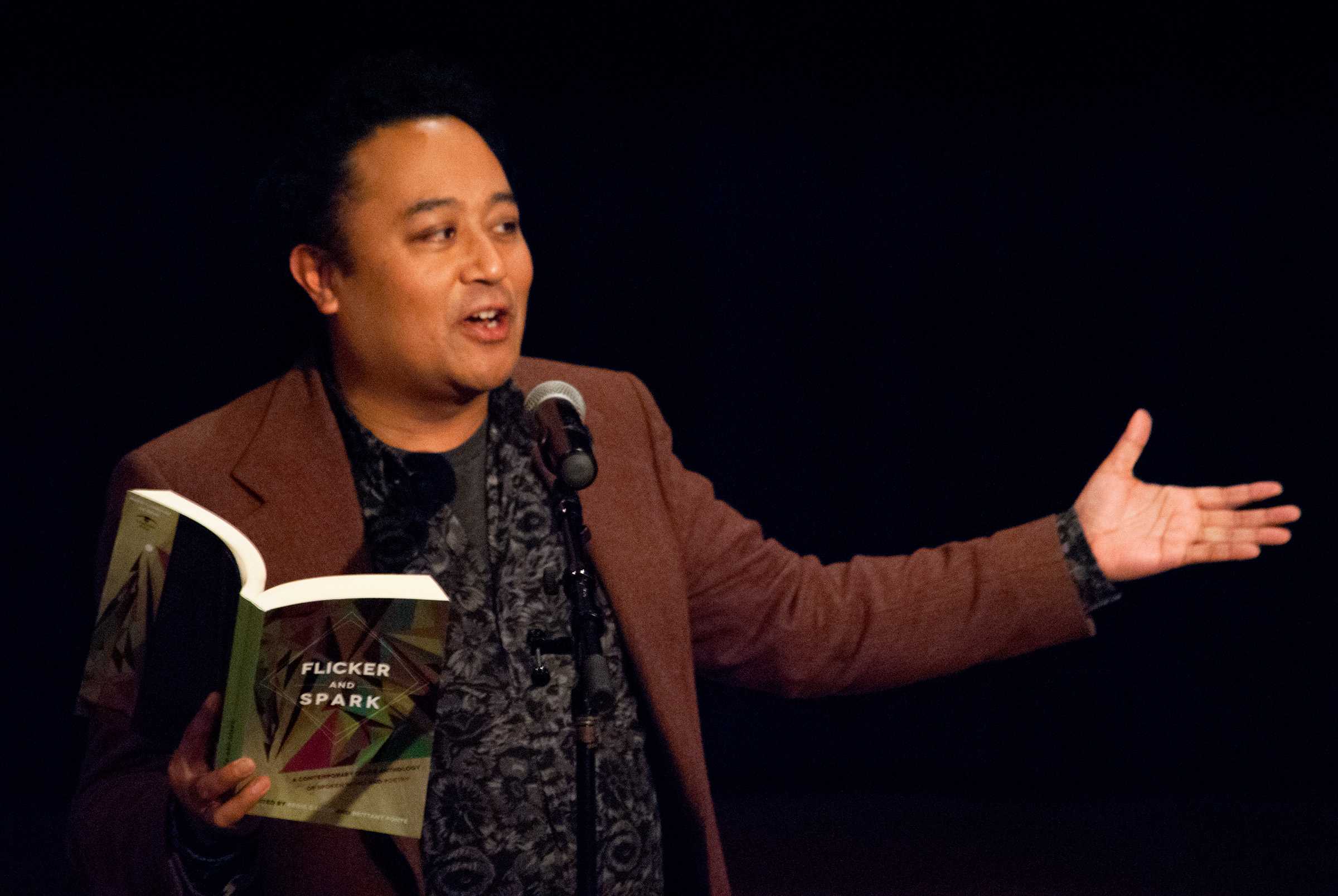The one-man show stopper
Spoken word poet Regie Cabico will perform here at CWU
January 16, 2017
By speaking freely on stage about the type of men that find him attractive, and the struggles of being “the perfect combination of boy and man,” spoken word poet Regie Cabico, who will perform Jan. 31, creates his own unique performance style.
Cabico perfected his craft by going to open mic nights all over New York City and began winning large scale competitions, such as “The Nuyorican Poets Cafe Grand Slam,” all of which in turn led to his long-term career in the field.
Xavier Cavazos, CWU professor of English and Africana and Black Studies, is one of the faculty members who helped bring Cabico from the “Big Apple” to Ellensburg. Cavazos says he’s excited to see Cabico perform because “not only is he a slice of the Big Apple NYC, he is also a slice of the world, a slice of sexual possibilities and discoveries.”
As an openly gay man, Regie Cabico has shed light on subjects previously considered inappropriate to discuss in such an open and casual manner.
“Mr. Cabico brings an awareness of identity that is rooted in celebrating one’s own beauty and validating one’s own struggle, pathways and migration,” Cavazos said.
After graduating from New York University’s (NYU) Tisch School of the Arts with a Bachelor’s of Fine Arts, Cabico found himself growing into his gay identity and navigating through it using spoken word.
“To me, slam poetry is a Broadway showstopper. It is YOUR Broadway showstopper—it is your three-minute play,” Cabico explained.
It was with that attitude and his background in theatre that he took the poetry world by storm and built up his skills in the spoken word craft.
“I was one of the first slam poets to really memorize my work,” Cabico said. “I treated it just like an actor would memorize his work.”
Cabico came into slam poetry when he was in a position in life in which he did not know if he was ever going to have a career in theatre arts.
“I was at the bottom of what I was going to do with my life,” elaborated Cabico.
With slam, performers speak and get scored, and the judges give their opinions. This gave Cabico input he could use to help benefit his artistry. “I knew how to perform,” Cabico said. “But I didn’t know if what I was writing were good poems or not.”
According to Cabico, he approaches his work with an incredible sense of realism. His views on poetry are simple— that it has to mean something and that it does not require the use of “pretty language.”
Cabico believes that his work should be less centered around strict word craft, but instead focus more heavily on if he is able to connect and push the line with his audiences. He does this by identifying what he wants to illustrate to listeners.
“Where is the line and how do we all connect?” Cabico asked.
It is important for him to think over before a performance, and he believes not many other poets think that way. Cabico wants to deliver a quality product that pushes the envelope for people listening, without crossing the line and making people feel uncomfortable or alienated.
“As a poet, why do I care? With poetry slam, you have three minutes to say something-
what do you want to say?” Cabico asked.
Cabico says his ultimate goal is to remain true to himself and illustrate his own values and opinions in such a way that his listeners can relate.
He continues to explain how everyone has their own interpretation of the definition of poetry, but for him, it is “strong emotion, plus images.” Within this definition, he fills the voids in his listeners’ minds with incredible descriptions and details, while wrapping them with a much deeper overlying theme.
Cabico connects with his listeners on a number of notes, but part of his lasting success has been his method of combining humor and sadness together.
“Sometimes I’ll go flamboyant, in terms of my closes,” Cabico said. “But I won’t go too far. I like to push it a little.”

Poet Regie Cabico during the Dirty Rice performance on March 21.

